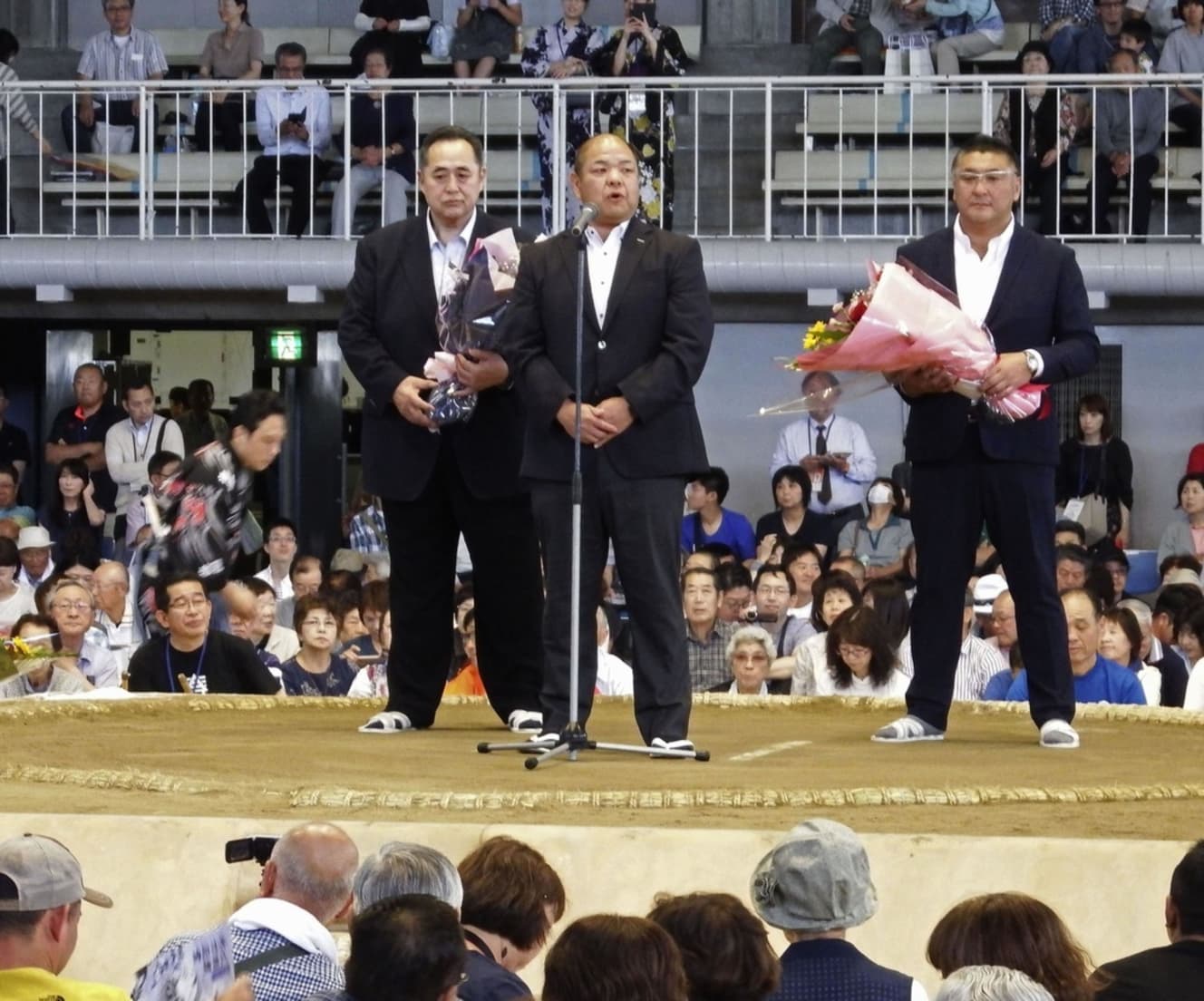Ryogoku Kokugikan’s ‘Sweets Oyakata’s Shop’ Closes Amid NHK Broadcasting Rights Fee Dispute

The May Grand Sumo Tournament began with all advance tickets sold out until the final day on May 26th, but the situation is far from Chairman Hakkaku’s (former Yokozuna Hokutoumi) pledge for enhancement on the dohyo sumo ring. Last tournament, newly promoted to the top division after 110 years, Mitakeumi, and Komusubi Asanoyama, both went on hiatus from the first day. From the second day, Yokozuna Terunofuji, Ozeki Takakeisho, and from the seventh day, Ozeki Kiribayama, and Sekiwake Wakatakakage, a total of 10 wrestlers of Juryo or higher have been absent by the 19th day.
Outside the ring, under the new regime of Chairman Hakkaku, who entered his fifth term this month, Shibatayama Oyakata (former Yokozuna Akinoshima) was reassigned from the executive board to the head of the training center. Among sumo reporters, it was thought he was to be promoted to the post of head of the business department, which is said to be a post for the next chairman, but in what amounts to a demotion in reality, the conflict between the two former Yokozuna from Hokkaido, who had vied for supremacy, has come to light. Another sumo reporter reveals.
“Despite allegations of harassment by one of Chairman Hakkaku’s close aides (Chief Tetsuji Miyata), nothing changed after the suspension period, and he continued in his position. Shibatayama Oyakata raised objections, saying, ‘This is unacceptable!'”
In November 2015, Chairman Hakkaku, who led the Sumo Association following the death of the late Chairman Kitanooh, has maintained an attitude of no forgiveness for those who oppose the executive board. In 2018, he forced out Oyakata Takanohana, who had been in conflict with the executive board, and furthermore, when the misconduct of Miyagino Oyakata (former Yokozuna Hakuho), who had repeatedly voiced objections to the management of the association since his active days, came to light in February, he decided to effectively close the stable as a severe punishment. Shibatayama Oyakata had been a fellow advocate for enhancement on the dohyo to rectify numerous past scandals. However, their relationship became irreparably strained when it came to negotiations with NHK, the lifeline of the Japan Sumo Association’s income.
“The Japan Sumo Association has a contract with NHK for the live broadcast of the six tournaments each year. It’s said to be 5 billion yen per tournament, totaling 30 billion yen annually, funded by the television license fees paid by the public. However, NHK announced a revised plan for the 2021-2023 fiscal year in October 2022, including a drastic ‘slimming down declaration’ such as lowering license fees and reducing the number of channels, and as part of that, decided to reduce sports broadcasting rights fees, totaling 15 billion yen. Furthermore, they’ve reduced the license fees from the 2023 fiscal year,” says an evening paper journalist.
In the 1990s, during the height of the Wakanohana Fever when sumo became incredibly popular, the broadcasting rights fee was 400 million yen per tournament. Despite the waning of sumo’s popularity after 2000, the fee increased to 500 million yen per tournament.
“It’s said that at that time, NHK’s powerful chairman, Katsuji Ebisawa, wanted to become chairman of the Yokozuna Deliberation Committee, so the fee was raised,” says a sumo reporter who knows the time well.
It was believed that NHK would never cut the broadcasting rights fees due to its long-standing honeymoon relationship with the Japan Sumo Association. However, NHK, which has been forced to reduce sports broadcasting rights fees and license fees, couldn’t be blamed for wanting to protect its bottom line.
“When NHK issued a price reduction directive to the Japan Sumo Association, Shibatayama Oyakata, as the head of the public relations department, managed to secure a three-year contract as part of his regular duties, thinking, ‘We have to somehow stop this,'” says the aforementioned evening paper journalist.
However, NHK did not comply with Shibatayama Oyakata’s request. Chairman Hakkaku, upon learning of the situation, went to NHK, but the price was raised slightly compared to when Shibatayama Oyakata negotiated, but the reduction in the broadcasting rights fee itself couldn’t be stopped. Ultimately, due to Shibatayama Oyakata’s ‘failure’ in the initial negotiations, a complete rift occurred between the two.
A popular restaurant for sumo fans limited to the Tokyo tournament has disappeared.
During the ongoing Summer Grand Sumo Tournament, which began on the 12th, an event occurred that seemed to symbolize the “rift” between Hakkaku and Shibatayama. Under the leadership of Shibatayama Oyakata, who held key positions such as head of the public relations department and head of the general planning department at the time, an idea from his subordinate, Takasaki Oyakata (former Maegashira Kanekiyama), led to the opening of “Sweets Oyakata’s Shop” inside the Ryogoku Kokugikan, selling items like “Sweets Bread” and “Yokozuna Bread” from the 2021 Summer Tournament onwards. The shop, which sold these items daily from around 11 a.m. and saw sales of up to 400 items on weekends, was extremely popular among sumo fans. However, this month, without any prior announcement, the popular shop suddenly took down its signboard.
“Shibatayama Oyakata, wearing his own apron with the slogan ‘What’s wrong with a man having a sweet tooth!’ himself, also worked as a salesperson. He started the shop wanting to do something beneficial for sumo fans amid dwindling attendance due to the pandemic,” reveals a sumo reporter.
Despite the earnest efforts of Shibatayama Oyakata, who rose to the rank of Yokozuna during his active career, even taking on the role of a salesperson to support the popularity of sumo, it seems that such admirable efforts did not resonate with Chairman Hakkaku, ultimately leading to a distancing between them.
With a succession of top-ranking wrestlers absent, this tournament has been pointed out as potentially witnessing a banzuke collapse, where any wrestler could win. Behind the scenes, there is also ongoing strife between former Yokozuna.
PHOTO: Kyodo News